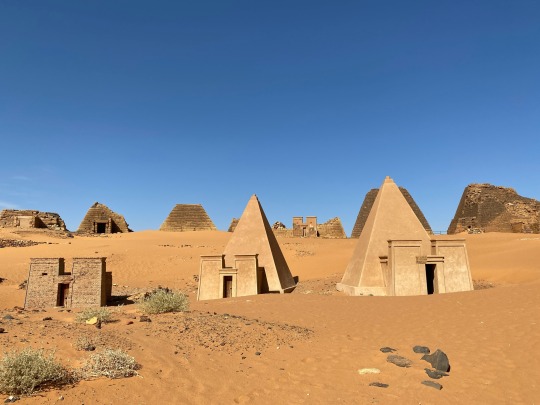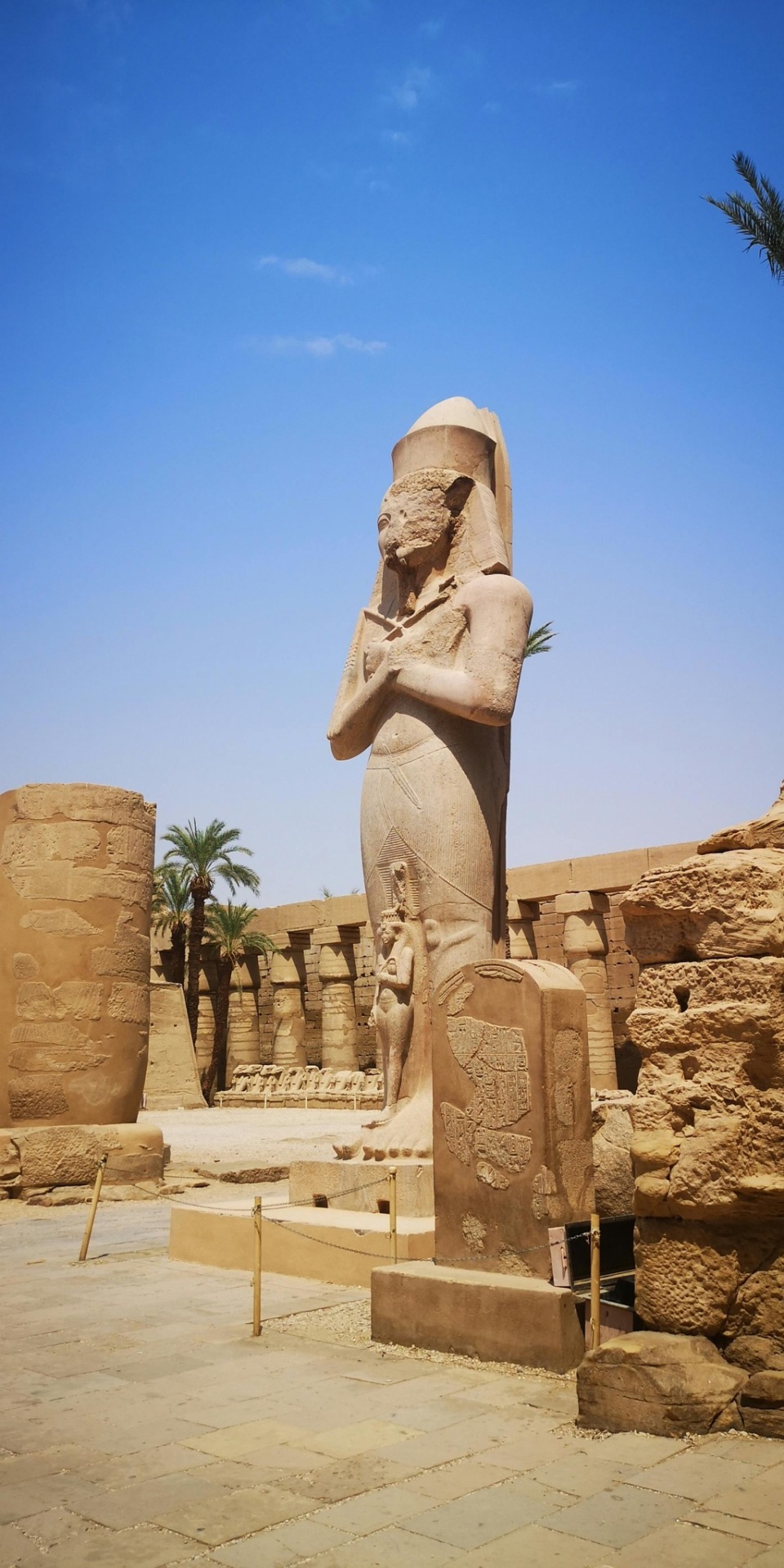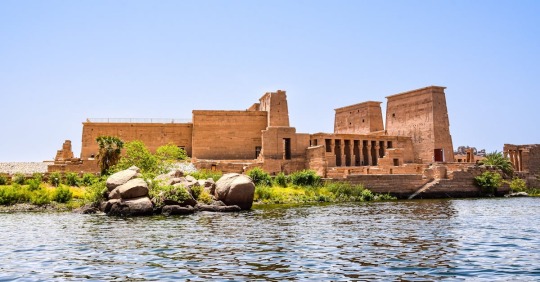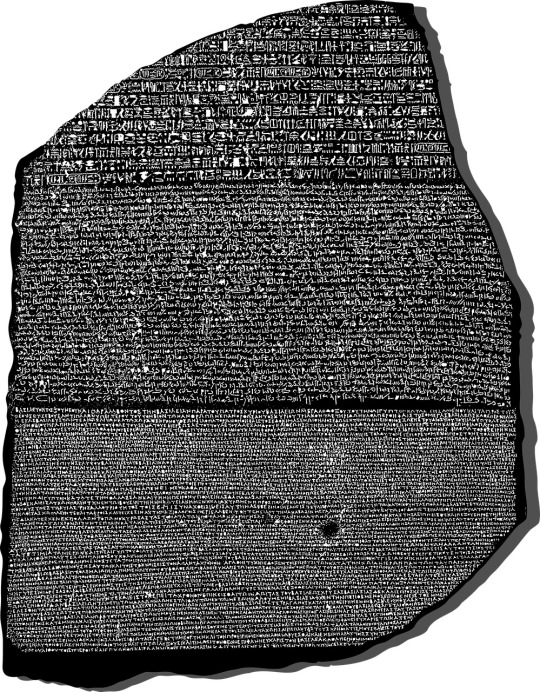Welcome to this blog, it is my travel log for His 101 class where I travel through Ancient Egypt seeing sites and events that it has to offer, and give out important facts about them. I enjoy learning about Ancient Egypt this was my first choice of topic for my project, seeing that it has always fascinated me and that I love to read about it. And I had fun traveling through there.
Don't wanna be here? Send us removal request.
Text
Site: Traveling down to Nubia

On my final stop in my Ancient Egyptian travel, I decided to visit Nubia or the Kingdom of Kush. This is stop is one that I could not wait to visit. As Nubia has many ancient cities like Meröe that host the Pyramids of Meröe. These pyramids are out number the ancient Egyptian ones. Although they are smaller in size than the ones in Giza. Because Egypt and Nubia have ruled over each other for thousands of years, so it would make sense that they have pyramids also! The King of Kush Aspalta has said “Our lord is here with us, but we do not know him! Would that we might know him, that we might enter in under him and work for him, as It-Tjwy work for Horus, the so of Isis……Let us give praise to his two crowns (Aspalta, 600BCE). In Aspalta phrase we can see that both the Egyptians and the Nubians both worship Egyptian gods and goddesses, his phrase included Horus and Isis. This can be accounted for with the Nubians were evidently well known by repute in the Southern Egyptian city of Aswan, and their geographical distribution may account for this; across the Northern Bayuda Desert and to the vital routes linking Moröe with the Northern Nile and Egypt (Kirwan, 46). The Greek geographer believed that the city of Moröe is inhabited by Ethiopians as this comes from his quote “I went as far as Elephantine [Aswan] to see what I could with my own eyes, but for the country still further south I had to be content with what I was told in answer to my questions. South of Elephantine the country is I habituated by Ethiopians (Herodotus, 430BCE). The Greek believes that Nubia is made up of Ethiopians which could not be the case as the Nubians are the ones who consist of Nubia. This is because Nubians next appear under the name ‘Nobades’ a Greek form of Noba, in the well-known Greek wording of ‘Silko, king of the Nobades and of the Ethiopians’ in the lower Nubian temple of kalabasha, now rebuilt on the outskirts of Aswan (Kiirwan, 47).
3 notes
·
View notes
Text
Event: Learning from the teachings of Ptah Hotep

Still traveling on my trip through Ancient Egypt, I decided to stop and get some teachings from Ptah Hotep a pharaoh and philosopher. Ptah Hotep has wisdom to share with his kingdom and I wanted to learn from him. One of his many wisdom teaches from his precepts is the saying “O Ptah with the two crocodiles, my lord, the progress of age changes into senility. Decay falls upon a man and decline takes place of youth. A vexation weighs upon him every day………Old age makes a man altogether miserable” (Ptah Hotep,2200BCE). He knows that with old age comes a person losing what is naturally with youth, such as the ability to see, smell, and overall remember things. These teachings are included on two sets of moral and social declarations, that are called “Negative Confessions”. That have been accumulating since the 11th or 12th dynasties, and finally appeared in collected form in book 25 of the texts of “Book of the Dead” from the 18th dynasty (Hertzler, 175). The teaching about old age is to prepare the citizens for when the end is near or when they are dying. And he praise to the God Ptah because the Egyptians got their youth or form from him. He follows up with that goes along with the previous teaching “Beginning of the arrangement of the good sayings, spoken by the noble lord, the divine father, beloved of Ptah, the first son of the king, the first-born of his race, the prefect and feudal lord Ptah Hotep…..It is profitable for him who hears them, it is a loss to him who shall transgress them (Ptah Hotep, 2200BCE). What he is saying is that whoever is listens to his teachings that he gets from Ptah is a blessing for him, but for the ones who don’t hid his warnings is a lost for him. As he is only here to give out advice to the Egyptian population. As I finish up here I leave with a last teaching from him and that is “Inspire not men with fear, else Ptah will fight against you in the same manner.If any one asserts that he lives by such means, Ptah will takes away the bread from his mouth (Ptah Hotep, 2200BCE).
2 notes
·
View notes
Text
Work cited
Breasted, James Henry. “The Earliest Boats on the Nile.” The Journal of Egyptian Archaeology 4, no. 2/3 (1917): 174–76. https://doi.org/10.2307/3853883.
Hertzler, J. O. “The Social Wisdom in the Ancient Egyptian Precepts.” Social Forces12, no. 2 (1933): 174–86. https://doi.org/10.2307/2569739.
https://doi.org/10.2307/2569739
“Internet History Sourcebooks Project: Ancient History.” Accessed April 23, 2024. https://sourcebooks.fordham.edu/ancient/rosetta-stone-translation.asp.
“Internet History Sourcebooks Project: Ancient History.” Accessed April 23, 2024. https://sourcebooks.fordham.edu/ancient/nubia1.asp.
“Internet History Sourcebooks Project: Ancient History.” Accessed April 23, 2024. https://sourcebooks.web.fordham.edu/ancient/hymn-nile.asp.
“Internet History Sourcebooks Project: Ancient History.” Accessed April 23, 2024. https://sourcebooks.fordham.edu/ancient/ptahhotep.asp.
Kirwan, L. P. “Nubia and Nubian Origins.” The Geographical Journal 140, no. 1 (1974): 43–51. https://doi.org/10.2307/1797006.
“The Restoration Stela of Tutankhamen,” March 19, 2007. https://web.archive.org/web/20070319034926/http://nefertiti.iwebland.com/tutankamun_restoration.htm.
Urbanus, Jason. “In the Time of the Rosetta Stone.” Archaeology 70, no. 6 (2017): 50–55. https://www.jstor.org/stable/26349029.
Weiss, Daniel. “The Cult of Amun.” Archaeology 68, no. 3 (2015): 48–51. https://www.jstor.org/stable/24364739.
https://www.jstor.org/stable/24364739
https://www.jstor.org/stable/26349029
1 note
·
View note
Text
Site: Visiting one of the Amun Temples

Visiting a site on my trip through Ancient Egypt. I went to see one of the Amun Temples, the previous pharaoh Akhenaten tried to get rid of them during his reign as King of Egypt. His son the famous Tutankhamen decided to stop making Egypt monotheistic which is what his father was doing by making it illegal to worship gods that was not the God Aten. Tutankhamen in his restoration stela said this “Now when his majesty appeared as king, the temples of the gods and goddesses from Elephantine…..has gone to pieces( or fallen into neglect). Their shrines had become desolate, had become mounds overgrown with [weeds] (The Restoration Stela, 1330BCE). This is the reason King Tutankhamen has decided to restore all the temples and shrines because he is turning Egypt back a polytheistic worshipping civilization, where one god is not only worshipped but many. One of the gods brought back is Amun-Ra this is his temple I’m visiting. The god is portrayed by having a ram’s head, a kiosk is where a ram headed statue will rest when priests carries it in a sacred barque. When they travel on trips from the temple to festivals (Weiss,51).Festivals have large crowds and allow common people, who are barred from the temple, to worship the presence of the god, they are like big holidays (Weiss,51). The Amun temples being restored is Tutankhamen denouncing his father belief which he pushed on his citizens, with bring back old culture that the previous pharaohs that lived before them had worshipped and worked. It shows that just because Akhenaten made it rule that no one could worship any god because the only god Aten, there was still people who went against that rule and kept the Ancient Egyptian gods names alive like Amun. Tutankhamen’s Restoration Stela said this “But his majesty was in the palace…..made plans for this land and the daily need. Then his majesty thought in his heart and searched for something magnificent useful for his father Amen(The Restoration Stela, 1330BCE).
1 note
·
View note
Text
Event: Traveling on the Nile River

I stoped on my Ancient Egyptian tour to travel on the Nile river, I’m very excited about this one and seeing the many temples from the water. These river is very important to the Egyptians because it is a big source of water and helps to keep the little crops that are able or grow in the harsh desert environment thriving. The Hymn of the Nile even says “Hail to thee, O Nile! Who manifests thyself over this land, and comes to give life to Egypt! (Hymn of the Nile,2100 BCE). These great body of water does pose a danger as it has crocodiles living in it, many Egyptians have lost their lives to the crocodiles living in the Nile. To cross the river we used boats to not be swimming in the water where the crocodiles live at and are worshipped. The boats are made with two conical bundles of reeds, laid side by side and lashed together, has been how the boats are created since there early creation for travel down the Nile River (Breasted,174). These boats traveled like a feather down the river where I safely saw different temples sitting by the water which are referenced in the hymn with “you create the grain, you bring forth the barley, assuring perpetuity to the temples (Hymn to the Nile, 2100 BCE). The hymn shows that the Nile’s replenishing and helping the lands grow allows it to feed the many mouths that visit or lived in temples like the Egyptian priests. Clothes and papyrus paper is created by the plants that inhabited the forests like lands around the river. Nile feeds livestock so that they can be eating for food or offered to the Ancient Egypt gods. So that the Nile River can continue giving life to the surrounding territories and keep the Egyptian people alive because they need it to survive.
0 notes
Text
Event: Anniversary of the coronation of Ptolemy V (196 BC)

On my first stop for my trip through Ancient Egypt, I visit for the anniversary of the coronation of Ptolemy V reign as the King got Egypt. I will be celebrating the event with Egyptian priests in Memphis. The decree for all Ptolemy’s achievements is written on the Rosetta Stone, which is what the priests use to celebrate their kings victories. One decree on the Rosetta Stone that is celebrated is victory over his enemies, the hieroglyphics when translated says “ Towards the gods, triumphant over his enemies, who has restored the civilized life of men……” (The Rosetta Stone, 196 BC) The translation describes Ptolemy’s defeating his enemies who wanted to stop his reign and go against his wishes with the gods also wanting him to succeed. Ptolemy’s enemies were the Egyptians who didn’t like the Greek ruler, ruling over them. All the Ptolemaic rulers are of Greek decent so that didn’t abide well with native Egyptian citizens who revolted in what is known as the Great revolt (206-186 B.C.) little is known about the events besides what’s on the Rosetta Stone and the other series of carved steals (Uranus,51). Ptolemy like the other Hellenistic rulers is not liked by the Egyptian population for a good reason as they see them as foreign rulers considering the region they rule over is the top part of Egypt connected to the Mediterranean Sea known as the Ptolemaic Kingdom, their Greek origins very known. The stone tablet lets it be known to the priests who have to celebrate the anniversary of his ruling of Egypt. That Ptolemy’s leading of the Egypt is written by the gods and goddesses. On another decree written it says “Ptolemy, the ever-living, the beloved of Ptah, the God Epiphanes Eucharistos, the kingship in which he succeeded his father, they being assembled in the temple in Memphis this day declared” (Rosetta Stone, 196 BC). The Egyptian priests of Memphis do not have any other choice but to celebrate him, because it’s written on the stela, he has the gods backing him, and has won the battle against the Egyptian citizens who revolted against him.
0 notes